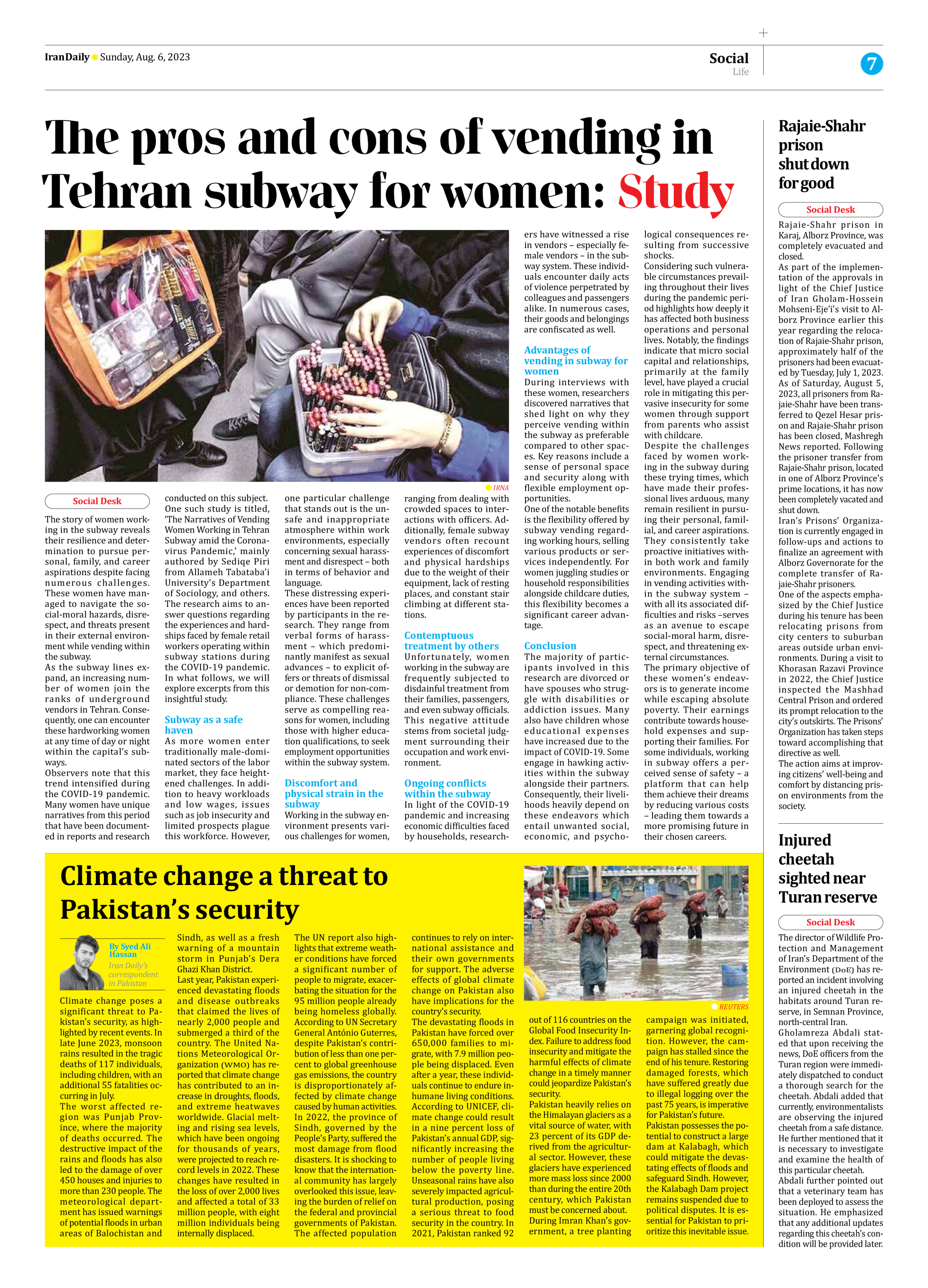
Climate change a threat to Pakistan’s security
By Syed Ali Hassan
Iran Daily’s correspondent in Pakistan
Climate change poses a significant threat to Pakistan’s security, as highlighted by recent events. In late June 2023, monsoon rains resulted in the tragic deaths of 117 individuals, including children, with an additional 55 fatalities occurring in July.
The worst affected region was Punjab Province, where the majority of deaths occurred. The destructive impact of the rains and floods has also led to the damage of over 450 houses and injuries to more than 230 people. The meteorological department has issued warnings of potential floods in urban areas of Balochistan and Sindh, as well as a fresh warning of a mountain storm in Punjab’s Dera Ghazi Khan District.
Last year, Pakistan experienced devastating floods and disease outbreaks that claimed the lives of nearly 2,000 people and submerged a third of the country. The United Nations Meteorological Organization (WMO) has reported that climate change has contributed to an increase in droughts, floods, and extreme heatwaves worldwide. Glacial melting and rising sea levels, which have been ongoing for thousands of years, were projected to reach record levels in 2022. These changes have resulted in the loss of over 2,000 lives and affected a total of 33 million people, with eight million individuals being internally displaced.
The UN report also highlights that extreme weather conditions have forced a significant number of people to migrate, exacerbating the situation for the 95 million people already being homeless globally. According to UN Secretary General António Guterres, despite Pakistan’s contribution of less than one percent to global greenhouse gas emissions, the country is disproportionately affected by climate change caused by human activities.
In 2022, the province of Sindh, governed by the People’s Party, suffered the most damage from flood disasters. It is shocking to know that the international community has largely overlooked this issue, leaving the burden of relief on the federal and provincial governments of Pakistan. The affected population continues to rely on international assistance and their own governments for support. The adverse effects of global climate change on Pakistan also have implications for the country’s security.
The devastating floods in Pakistan have forced over 650,000 families to migrate, with 7.9 million people being displaced. Even after a year, these individuals continue to endure inhumane living conditions. According to UNICEF, climate change could result in a nine percent loss of Pakistan’s annual GDP, significantly increasing the number of people living below the poverty line. Unseasonal rains have also severely impacted agricultural production, posing a serious threat to food security in the country. In 2021, Pakistan ranked 92 out of 116 countries on the Global Food Insecurity Index. Failure to address food insecurity and mitigate the harmful effects of climate change in a timely manner could jeopardize Pakistan’s security.
Pakistan heavily relies on the Himalayan glaciers as a vital source of water, with 23 percent of its GDP derived from the agricultural sector. However, these glaciers have experienced more mass loss since 2000 than during the entire 20th century, which Pakistan must be concerned about.
During Imran Khan’s government, a tree planting campaign was initiated, garnering global recognition. However, the campaign has stalled since the end of his tenure. Restoring damaged forests, which have suffered greatly due to illegal logging over the past 75 years, is imperative for Pakistan’s future.
Pakistan possesses the potential to construct a large dam at Kalabagh, which could mitigate the devastating effects of floods and safeguard Sindh. However, the Kalabagh Dam project remains suspended due to political disputes. It is essential for Pakistan to prioritize this inevitable issue.







